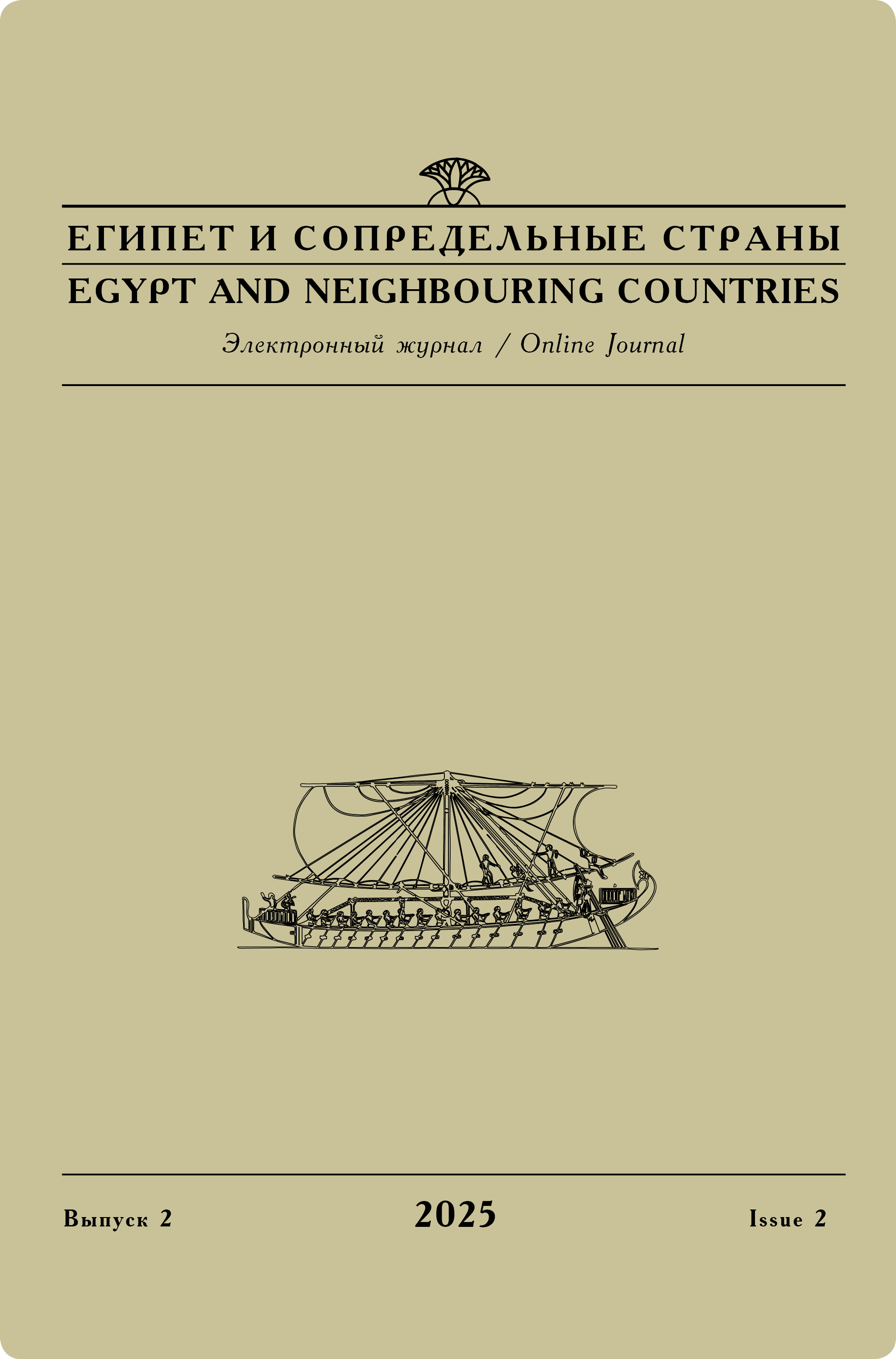Issue 2, 2022
R. A. Orekhov
K voprosu ob iznachal'nom raspolozhenii Ankh-taui [Some considerations on localization of Ankh-tawy]
The article raises one of key issues within a major theme of formation of Ancient Egyptian state at the beginning of the 3rd millennium BC: an original meaning of the toponym Ankhtawy (“Life of Both Lands”) is attempted to be clarified, since history of a capital of Egypt, Memphis, is associated with it in historiography. Comparing different opinions about the nature of this toponym, the author comes to conclusion that a position of those researchers who connect Ankhtawy with Wadi Abusir is the fairest from a historical point of view. Decisive arguments in this discussion are the geophysical data obtained by the Egypt Exploration Society as well as materials of an archaeological mission of the Waseda University (Japan), which made it possible to localize an ancient sanctuary of the goddess Bastet in Wadi Abusir. Bastet was the patroness of Ankh-tawy in the Early and Old Kingdoms.
Keywords:
theory of G. A. Belova, theory of F. Borrego-Gallardo, Memphis, Wadi Abusir, sanctuary of the goddess Bastet, archaeological mission of the Waseda University (Japan), Egypt Exploration Society.
Original language — Russian.
DOI: 10.24412/2686-9276-2022-00005.
Referring: Orekhov R. А. Some considerations on localization of Ankh-tawy [in Russian] // Egypt and neighbouring countries 2 (2022): 11-22. DOI: 10.24412/2686-9276-2022-00005.
Read full article




